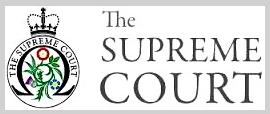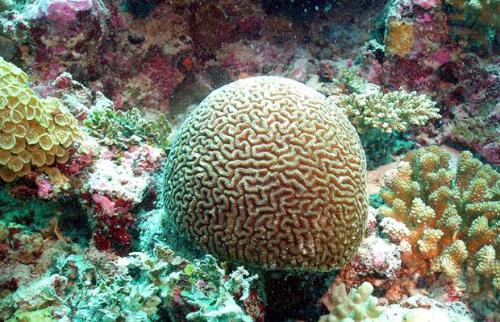See a 2011 summary of the Giffords’ earlier involvement on a sister site.
Officially part of the British Indian Ocean Territory, but also claimed by nearby Mauritius, the Chagos Islands were home to the Chagossians for more than a century and a half until the United Kingdom evicted them in the early 1970s and allowed the United States to build a military base on Diego Garcia, the largest of the Chagos Islands. Since 1971, the atoll has been inhabited only by military and civilian contracted personnel.
 On Monday 22 June the Supreme Court heard two appeals by former residents of the Chagos Islands who were forcibly removed from their homeland more than 40 years ago. The appeals were watched here by many on ‘live streaming’. In the Guardian, “Prominent lawyer Richard Gifford, who has worked with Chagossians for almost two decades, argues that “Iraq changed everything,” tracking the reluctance to support Chagossian return to the Diego Garcia US military base’s role in to the controversial 2003 US-UK led invasion of Iraq”. The UK Chagos Support Association added: “That the case has returned to the Supreme Court is also a testament to the relentless efforts of Richard Gifford over many years to discover the true facts and reveal what appear to be attempts to conceal information”. The full case can now be watched online here.
On Monday 22 June the Supreme Court heard two appeals by former residents of the Chagos Islands who were forcibly removed from their homeland more than 40 years ago. The appeals were watched here by many on ‘live streaming’. In the Guardian, “Prominent lawyer Richard Gifford, who has worked with Chagossians for almost two decades, argues that “Iraq changed everything,” tracking the reluctance to support Chagossian return to the Diego Garcia US military base’s role in to the controversial 2003 US-UK led invasion of Iraq”. The UK Chagos Support Association added: “That the case has returned to the Supreme Court is also a testament to the relentless efforts of Richard Gifford over many years to discover the true facts and reveal what appear to be attempts to conceal information”. The full case can now be watched online here.
 The main case concerned the application to set aside the House of Lords decision which upheld the abolition of the Right of Abode in the Chagos islands. The Supreme Court website has a summary here.
The main case concerned the application to set aside the House of Lords decision which upheld the abolition of the Right of Abode in the Chagos islands. The Supreme Court website has a summary here.
The second case was an appeal against the upholding of the Marine Protected Area around Chagos, which was declared by David Miliband MP, then foreign secretary, on 1st April 2010. It bans all fishing which has been identified as the main source of sustenance and economic activity for the population if they were permitted to return.
Belated disclosure of evidence
A panel of five supreme court justices, led by president Lord Neuberger, heard that the legal challenge was brought on the grounds of alleged “material non-disclosure” by the foreign secretary relating to a 2002 feasibility study into the resettlement of former inhabitants. In law this is called a breach of the “Duty of Candour”.
Specifically these documents included a copy of the draft of the 2002 feasibility study, correspondence, and the comments of an FCO scientific adviser, Charles Sheppard. Lawyers for the Chagossians suspected that these documents existed and had been asking for them since 2005 but the FCO and the Government lawyers (Treasury Solicitor) had claimed that they had all been destroyed. This was untrue and they were finally disclosed in May 2012.
The documents show that the FCO’s scientific adviser was unqualified to comment on the key areas of the report concerning present and future storms and wave-overtopping and flooding of the islands. As a result he endorsed a report whose science was fundamentally flawed and whose final conclusion, on which the Government’s case in the House of Lords was based, was also wrong.
Up-to-date scientific evidence demonstrates that the 2002 analysis was flawed
 It had originally been alleged that the islands were at risk from rising sea-levels which would eventually make them uninhabitable. However the islands are protected by one of the healthiest coral reef systems in the cleanest waters in the world. As a result, the ecosystems of the Chagos have so far proven resilient to climate change and environmental disruptions.
It had originally been alleged that the islands were at risk from rising sea-levels which would eventually make them uninhabitable. However the islands are protected by one of the healthiest coral reef systems in the cleanest waters in the world. As a result, the ecosystems of the Chagos have so far proven resilient to climate change and environmental disruptions.
“These low-lying coral islands should continue to be able to support human habitation, as they have done for much of the last 200 years”
A search finds that in a 2012 paper: Contemporary sea level in the Chagos Archipelago, central Indian Ocean, [Dunne, R.P., Barbosa, S.M. and Woodworth, P.L. 2012. Global and Planetary Change 82-83: 25-37] finds that both earlier analyses cited “were based only on short tide-gauge data sets, involved inappropriate statistical methods, and as a result have given an erroneous impression of the magnitude and significance of sea-level rise in this area”.
Dunne et al. examined what they describe as “the up-to-date evidence of recent sea-level change in the Chagos Archipelago from tide gauge, satellite altimeter records, and ocean models.”…”there is no evidence of any statistically significant sea-level rise either from the Diego Garcia tide gauge (1988-2000 and 2003-2011) or in the satellite altimetry record (1993-2011).”…They say “there is no evidence of subsidence in the islands,” adding that on Diego Garcia there was actually crustal uplift of 0.63 ± 0.28 mm/year between 1996 and 2009, as recorded by GPS. And they add that “there is no evidence of changes in the wind or wave environment in the past 20 years.”…these results suggest that this has been a relatively stable physical environment, and that these low-lying coral islands should continue to be able to support human habitation, as they have done for much of the last 200 years.“ [Richard P. Dunne, Susana M. Barbosa, Philip L. Woodworth 2012: Global and Planetary Change]
Counsel for the Chagossians in the Supreme Court, Ed Fitzgerald QC, told the court that a serious injustice had occurred and invited the judges to overturn the 2008 decision and to restore the right of abode. Judgment was reserved.
–

Pingback: News from Zerbanoo Gifford | New Era Network